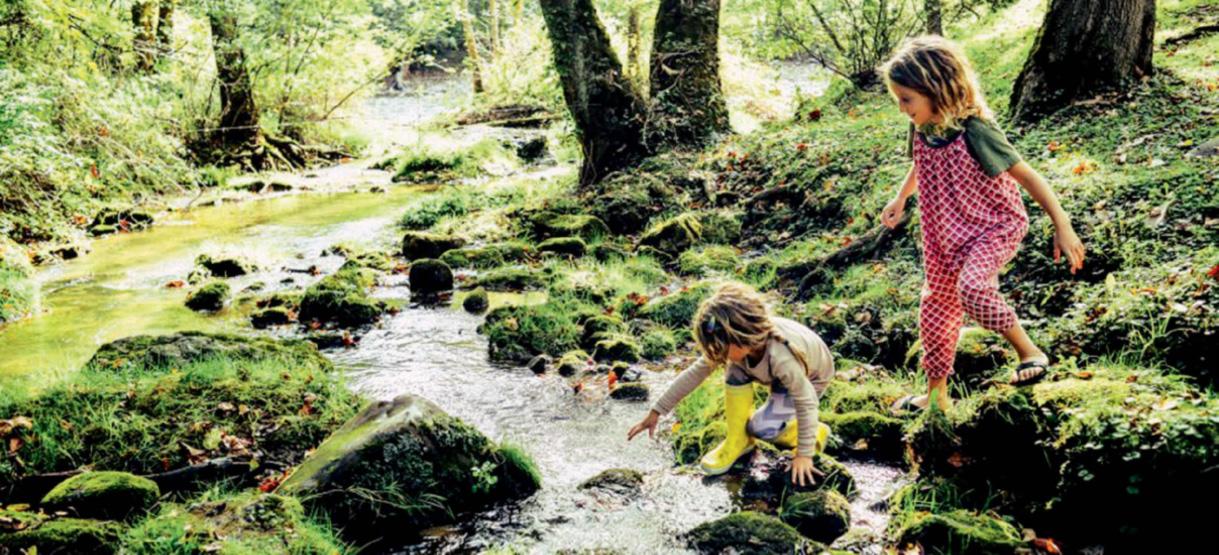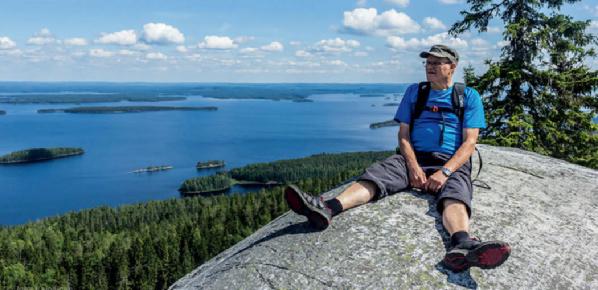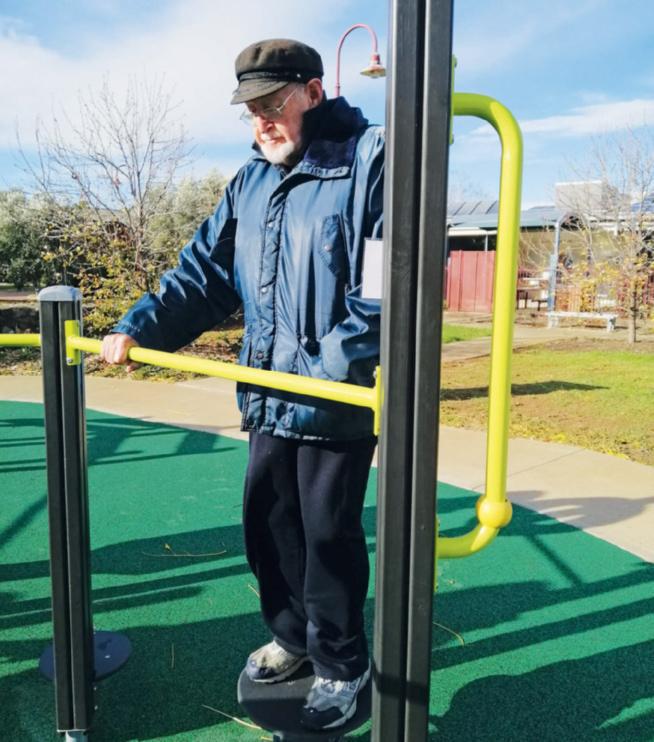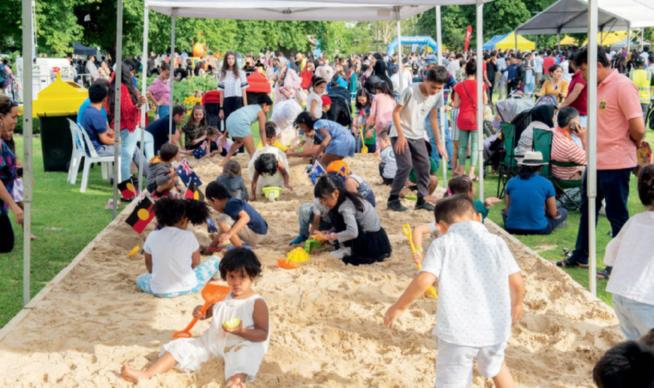
4 minute read
Vale Graeme Worboys
this research will hear from these young people themselves, as well as examining government policy, funding, capacity and capability of the sport sector.
One of the objectives of this research is to provide some practical outcomes for those wanting to become involved in disability sport provision. By identifying these arrangements and practices, illustrative case studies of what enables successful engagement can be articulated to sports organisations, as well as assisting in the development of future government initiatives, perhaps supporting a move from a mindset of “disability sport”, to a true sport-for-all system.
RESEARCH PARTICIPANTS Aligning with the Sport NZ priorities of tamariki and rangatahi, this research shall specifi cally engage YPwI aged 10 to 14 years who have either been born with or have acquired a physical or sensory impairment. Four (4) to fi ve (5) YPwI is considered adequate to achieve both manageable and robust information. They will be chosen from around the country and across sex, age and impairment. I also believe this age range is appropriate to allow the YPwI’s voices to be heard.
While the voice of YPwI is central, it does not negate the importance and value of adult voices, who may be best announce the passing of one of the most dedicated park professionals - Dr Graeme Worboys, AM.
Graeme epitomised the nature of those who are committed to conservation. A career protected area manager, he started working as a ranger, becoming superintendent and senior manager in protected area authorities in Australia. He then contributed to the science of governance and management of protected areas internationally through his contributions to the IUCN World Commission on Protected Areas.
Graeme had a special interest in mountains and connectivity conservation. He mobilised resources and encouraged people to study and develop guidance on these topics, notably through meetings in Ecuador, Nepal and other workshops, which many had the pleasure of attending.
Contributing his skill and expertise to the evaluation of prospective World Heritage Sites, Graeme was awarded the IUCN WCPA’s Fred Packard Award for Outstanding Service at the IUCN World Conservation Congress in Hawai’i in 2016. defi ned as the enablers/champions. It is well recognised that this group play an important role in enabling and supporting young people’s engagement in sport and active recreation and they too will be participants in this study.
PARTICIPATORY ACTION RESEARCH The aim of this research is to identify the enablers of disabled young peoples’ engagement in sport and active recreation within Aotearoa. By hearing the voices of participants of their lived experiences, and garnering evidence from providers, this study focuses on the positive infl uences on sport and active recreation participation.
As a researcher, while I come to this study with a wealth of knowledge and experience working in disability sport, framing this work alongside an academic methodological perspective is essential to ensure the quality and credibility of the work and the outcomes. To this end, I am utilising Participatory Action Research (PAR) as my research methodology.
Utilising PAR for this research highlights the lack of engagement of young people and particularly disabled young people in existing research and is a weakness that requires addressing. More recently researchers have highlighted the inequity aff orded to disabled young people in participatory research. They acknowledged
A remarkable man, Graeme was constantly to strengthen management in Australia’s protected areas, especially his beloved Kosciuszko National Park, but also responded to the need to build expertise for conservation management more generally, via his prodigious publishing eff orts. He recognised the need to develop freely-available learning resources, and with his quiet persistence and determination, motivated hundreds of professionals to contribute voluntarily towards the state-of–the-art publication Protected Area Governance and Management, which launched in Sydney at the World Parks Congress in 2014.
Despite the medical demands of the last few years of his life, Graeme continued to write, teach and mentor colleagues and students through his work with WCPA specialist groups and Australian universities.
In a fi tting acknowledgement of his service, on Australia Day 2020, Graeme’s life of contribution was acknowledged by this nation when he was awarded the Member of the Order of Australia that including children as participants is now increasingly common, but this trend towards consulting children themselves is rarely extended to those with disabilities. Arguably, they are accidentally forgotten, assumed to have nothing to say or perceived to be methodologically diffi cult to include. Thus, disabled children and young people’s perspectives are overlooked (Wickenden & Kembhavi-Tam, 2014, pg 400).
WHERE TO FROM HERE? From here the real work begins. I am currently recruiting participants for my research and intend to spend the beginning of 2021 listening to these disabled young people about their experiences in sport and active recreation. If you are interested in my research email me at catrionalmcbean@gmail.com
AUTHOR’S NOTES
1. Catriona is a Board Member of Paralympics
New Zealand and volunteered at the 2018
Winter Paralympic Games in Pyeongchang,
South Korea. 2. For this research the term “disabled young person/people” will be used rather than
“young person/people with a disability”, to align with the social model of disability, which recognises people have impairments but
VALE GRAEME L WORBOYS
Parks and Leisure Australia is sad to
a doer who not only campaigned
society disables them. (AM). Covid-19 delayed the ceremony at Government House in Canberra, but fortunately Graeme was able to receive the honour in person just before his passing.
In the many tributes made to him, which have come from all around the world, colleagues and friends have remembered Graeme as gentle and unassuming. Those who knew him well also refl ect on his driving commitment and motivation, undeterred and unfl inching, to achieve the outcomes he so passionately believed in.
Our thoughts go out to his family, Bev, Patty and Andrew and their families and the grandchildren, in whom he delighted.










